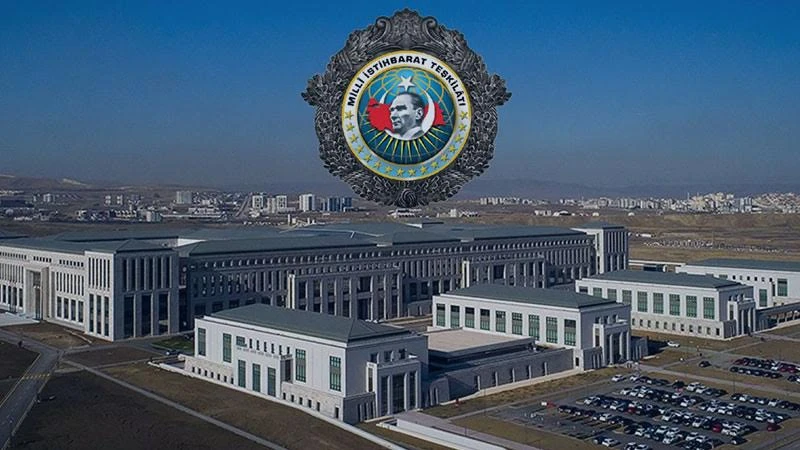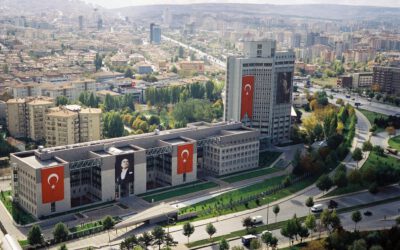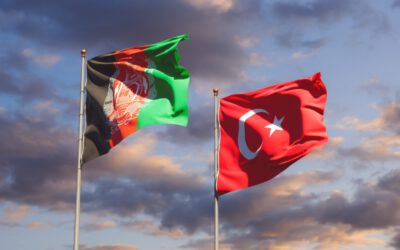The history of Turkish intelligence is a fascinating reflection of the political, social, and technological changes that have taken place in the region since the early 19th century. From the Ottoman Empire to the modern Republic of Turkey, intelligence has always played a central role in safeguarding national interests. I will try to highlight the key developmental phases of Turkish intelligence and analyzes how its structure and responsibilities have changed over the centuries.
The Beginnings: Intelligence in the Ottoman Empire
The first systematic efforts to create an organized intelligence service can be traced back to 1826. The abolition of the Janissary corps initiated a phase of comprehensive reforms that also included the security sector. In the face of ethnic, religious, and social tensions, as well as economic challenges, the need to collect and evaluate information centrally was essential. During the reign of Sultan Abdülhamid II, these efforts were intensified. The Ottoman Palace became the center of intelligence activities, with technological innovations and additional funding significantly improving capacities.
Despite these advances, the Ottoman intelligence service was primarily reactionary in orientation. Its main task was to protect the shrinking empire from further territorial losses. The focus was therefore on internal security and counter-espionage. The system underwent a significant development during the First World War, when the Erkan-ı Harbiye-i Umumiye (General Staff) established more extensive intelligence structures.
Transition to the Republic: The Establishment of MAH
After the collapse of the Ottoman Empire and the end of the First World War, Turkey was faced with the challenge of creating a new security architecture. During the transition phase of the War of Independence (1919-1923), secret organizations and military intelligence units played a crucial role. The objective shifted from defending the Ottoman Empire to creating a new Turkish state.
With the founding of the Republic of Turkey in 1923, the need for a modern intelligence organization became apparent. This led to the establishment of the National Security Service (MAH) in 1926. The structure of the MAH was strongly influenced by Western models, in particular the German military intelligence service under Walter Nicolai. The MAH was the first organization to take on both national and international tasks while also dealing with domestic challenges. Despite this progress, the service’s operational autonomy remained limited.
The Cold War and integration into the Western alliance system
With the onset of the Cold War, the Turkish intelligence service underwent a fundamental realignment. Its accession to NATO in 1952 and close cooperation with the United States led to intensive restructuring. The MAH sent staff to the CIA to learn modern espionage techniques and adopted many of the working principles of Western intelligence services.
During this period, the fight against communism became the main focus. The service concentrated primarily on domestic extremist movements and separatist tendencies. At the same time, Turkey remained an active player in the second geopolitical belt, which included neighboring countries. International cooperation within NATO provided access to the latest intelligence technology but also created a certain dependency on foreign partners.
The post-Cold War era: new threats and opportunities
The end of the Cold War and the collapse of the Soviet Union opened up new geopolitical opportunities for Turkey, particularly in Central Asia and the Caucasus. At the same time, threats increased from non-state actors such as terrorist organizations and international criminal networks. The intelligence service had to adapt to these changing conditions.
In the 1990s, however, domestic political instability, economic crises and conflicts with neighboring countries prevented comprehensive reform. It was not until the end of the 1990s that change began to take place. From the 2000s onwards, Turkey took a more active role in regional and global affairs, which required a further realignment of the intelligence service. During this period, cyber defense and the fight against international terrorism became particularly important.
The increasing importance of the Middle East and the Caucasus region for Turkish foreign policy led to a stronger focus of the intelligence service on preventive and proactive measures. This phase was characterized by more intensive cooperation with international partners, but also by the development of independent strategies to combat threats. The introduction of new technologies such as cyber surveillance and drone technology marked a turning point in the efficiency of the service.
The modern MIT: restructuring and expansion
The Turkish intelligence service, known today as the Milli İstihbarat Teşkilatı (MIT), has undergone a major transformation since the 2010s. Under the leadership of Hakan Fidan, internal structures were reformed and the focus on foreign operations was strengthened. MIT now operates in several strategic belts, from North Africa to Central Asia, and has also operated in remote regions such as the Horn of Africa.
Hakan Fidan and his role
Hakan Fidan was the head of MİT from 2010 to 2023. Under his leadership, the Turkish intelligence service developed into one of the most influential secret services in the region. Fidan is often considered a close confidant of Turkish President Recep Tayyip Erdoğan. His term in office was marked by intensive modernization and an expansion of MİT’s operational capabilities.
Important developments under Hakan Fidan:
- Operational expansion:
- Under Fidan, the MİT intensified its activities abroad, particularly in conflict zones such as Syria, Iraq and Libya.
- The intelligence service also carried out targeted operations against Kurdish groups such as the PKK and against members of the Gülen movement, which the Turkish government considers a terrorist organization.
- Technological modernization:
- MİT invested heavily in cybersecurity, surveillance technologies, and drone technology to remain competitive in modern information warfare.
- International relations:
- Hakan Fidan established close contacts with other intelligence services, particularly in the Middle East, Europe, and Asia.
- Political role:
- Fidan was seen as a key player in Turkey’s foreign policy strategies, such as negotiations with Russia, Iran and other regional actors.
The role of MIT in international diplomatic processes has increased. It now not only acts as an intelligence service, but also as a central player in Turkey’s geopolitical strategy. This is particularly evident in multilateral negotiations and operations in crisis regions such as Syria, Libya and the eastern Mediterranean. MIT’s ability to act both preventively and reactively has strengthened Turkey’s position in the international arena.
MIT’s continuous technological modernization is another key to its success. The use of artificial intelligence, big data, and autonomous systems has significantly improved the efficiency and accuracy of intelligence work. At the same time, the service has invested heavily in training its personnel to ensure that they are equipped to meet the challenges of the 21st century.
In June 2023, Hakan Fidan was appointed Foreign Minister of Turkey. This change underlines his influence and importance for the Turkish government. His successor at the head of MİT is İbrahim Kalın, a former spokesperson and close confidant of President Erdoğan.
The MIT, the Gülen Movement1 and MIT-Reforms
Turkey’s recent history has witnessed many debates on the restructuring of state institutions. In this process, the MIT both claimed to be strengthened by reforms and came under criticism for its weak democratic oversight mechanisms. The confrontation with the Gülen Movement is an important part since 2011. However, this confrontation was not limited to a security threat; it also exposed structural problems in the functioning of MİT and its relationship with different power centers of the state.
The reform process of the MİT gained momentum especially in the early 2010s, and the organization was restructured with the aim of modernizing against the increasing security risks in the region. However, this process increased the lack of civilian oversight and the closedness of decision-making processes. The conflict, which began with allegations that the Gülen Movement had infiltrated state institutions, became the focus of MİT’s operations both internally and externally during this period. This deepened the organization’s lack of transparency and accountability.
In 2011, the leak of the audio recordings of the so called “Oslo talks” marked one of the first major tensions between the Gülen Movement and MİT. This incident demonstrated that the state’s intelligence agency manages even peace processes involving large segments of society behind closed doors and without accountability. On February 7, 2012, MİT Undersecretary Hakan Fidan was called to testify, which resulted in the political power’s reflex to protect MİT. However, this further exacerbated the power imbalance between institutions and concerns about judicial independence.
Another important step in MİT’s transformation process was the transfer of the GES Command to the organization in 2012. This was a turning point in terms of improving the technological infrastructure and centralizing intelligence activities. However, at the same time, this process has further distanced the organization’s activities from democratic oversight. In particular, the increase in foreign operations and the establishment of new units such as the Strategic Intelligence Directorate have led to criticism that the organization has pursued a more aggressive policy abroad.
MİT’s fight against the Gülen Movement has raised serious questions about the extent to which legal and ethical boundaries have been pushed in order to increase the organization’s power. In 2014, the detection of the ByLock application was presented as a blow to the movement’s communication network, but there was considerable debate about the methods used and the accuracy of the data obtained. The perception of the Gülen Movement as a threat rendered MİT’s methods unquestionable and paved the way for the suppression of criticism of the intelligence agency’s activities.
As a result, the MİT’s reform process under the name of modernization, while increasing the effectiveness of the institution, has undermined basic democratic values such as accountability and transparency. The fight against the Gülen Movement has not only been a security issue, but also a litmus paper for the extent to which the state can remain impartial towards different power centers and the functioning of democratic oversight mechanisms. The restructuring of the National Intelligence Organization (MİT) marks a period in which Turkey has shaped its security priorities in a more authoritarian manner and pushed citizens’ rights to the background.
Conclusion: Challenges and prospects
Despite impressive progress, the Turkish intelligence service faces a number of challenges. Reliance on technological imports remains a weakness that could compromise national autonomy. Furthermore, the increasing globalization of threats requires closer cooperation with international partners, which at the same time highlights the need to safeguard national interests.
Another issue is the balance between security and freedom. The expansion of the intelligence service in recent years has also raised concerns about civil rights and transparency. To be successful in the long term, the service must not only act effectively, but also responsibly.
MIT’s future development will depend on how well it manages to combine innovation and tradition. Building a more sustainable infrastructure, promoting interdisciplinary cooperation and involving civil society actors more could help to further strengthen the effectiveness and legitimacy of the intelligence service.
The history of the Turkish intelligence service is characterized by constant adaptation to changing geopolitical realities. From the reactive approach of the Ottoman Empire to the integration of the West during the Cold War and the global expansion of the MIT, a remarkable development can be seen. While the intelligence service today has advanced technologies and international networks at its disposal, the question of the sustainability of its structures and strategies remains central. Only through further institutionalization and long-term planning can the Turkish intelligence service secure and expand its position as a global player.
Sources:
- Mustafa Aksakal, Ottoman Road To War in 1914: The Ottoman Empire and the First World War / Cambridge University Press, 2008
- Florian Altenhöhner, Total War – Total Control? German Military Intelligence on the Home Front, 1914-1918 / Journal of Intelligence History, 5/2 (2005) : 55-72
- Hanefi Avci, Cemaatin Iflası: Hoca’nın Ayağının Kaydığı Yer / İstanbul:Tekin – 2015
- Enes Bayraklı – Ufuk Ulutaş (ed), FETÖ’nün Anatomisi: İhanet, Kumpas, Takiye / SETA – 2017
- Mehmet Ali Beyhan, II. Abdülhamit Döneminde Hafiyye Teşkilatı ve Jurnaller / İlmi Araştırmalar – 8 (1999): 65-68
- Yahya Bostan, Kod Adı Bay Bay: FETÖ’nün Dijital “İni” ByLock’a Böyle Girildi / Turkuaz – 2017
- Tarık Oğuzlu, Güvenlik Kültür ve Türk Dış Politikası / Bilig. 72 (2015): 223 – 250
- Polat Safi, Milli İstihbarat Teşkilatı, 1826 – 2023 / Kronik Kitap – 2023
- The Gülen movement (also known as Hizmet) is a group of religious, educational and social organisations in Turkey and abroad, founded and inspired by Fethullah Gülen. In May 2016, Turkey designated the movement a terrorist organisation, referring to it as the Fethullah Terrorist Organisation (FETO). ↩︎





0 Comments